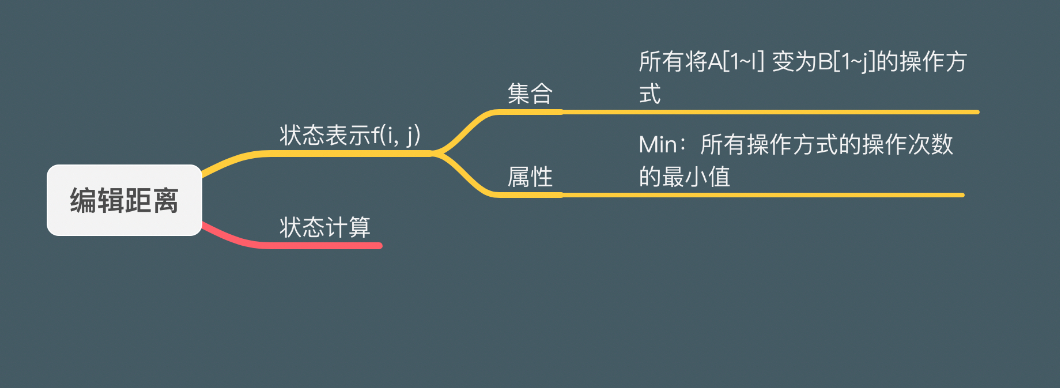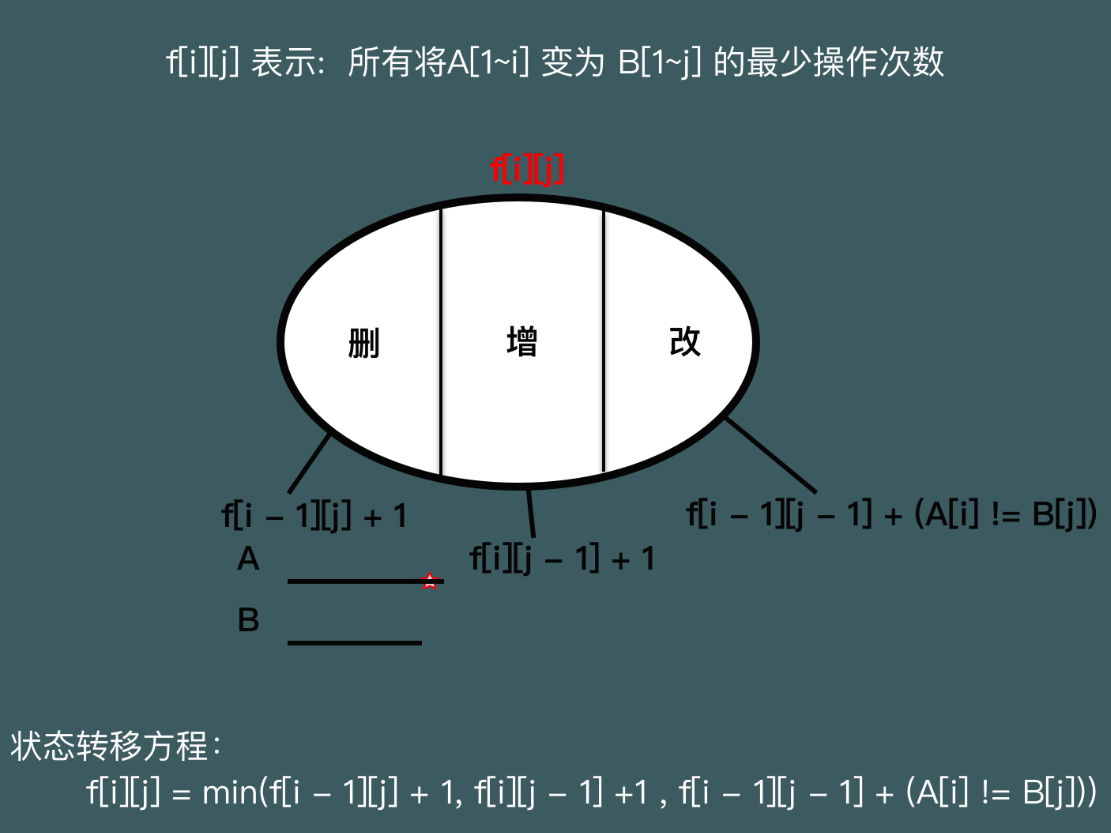-
思路与最短编辑距离一样,可以参考上一篇文章
最短编辑距离


#include <iostream>
#include <algorithm>
#include <cstring>
using namespace std;
const int N = 15, M = 1010;
int n, m;
int f[N][N]; //动态规划数组
char str[M][N]; //所有的字符串,最多有1000个字符串,每个字符串最大长度为n
int editDistance(char a[], char b[])
{
int la = strlen(a + 1), lb = strlen(b + 1);
int lc = strlen(a);
cout<< "lc =" << lc << endl;
for (int i = 0; i <= lb; i ++) f[0][i] = i;
for (int i = 0; i <= la; i ++) f[i][0] = i;
for (int i = 1; i <= la; i ++)
for (int j = 1; j <= lb; j ++)
{
f[i][j] = min(f[i - 1][j] + 1, f[i][j - 1] + 1);
if (a[i] == b[j]) f[i][j] = min(f[i][j], f[i - 1][j - 1]);
else f[i][j] = min(f[i][j], f[i - 1][j - 1] + 1);
}
return f[la][lb];
}
int main()
{
cin >> n >> m;
for (int i = 0; i < n; i ++) cin >> (str[i] + 1); //与最短编辑距离不一样,最短编辑距离只需要输入一个字符串
//而这道题是要输入n个字符串
while (m --)
{
char s[N];
int limit;
cin >> s + 1 >> limit;
int res = 0;
for (int i = 0; i < n; i ++)
{
if (editDistance(str[i], s) <= limit) //枚举每一个字符串与题目规定的字符串进行比较
res ++;
}
cout << res << endl;
}
return 0;
}
注意:区分下标从1还是从0
#include <iostream>
#include <algorithm>
#include <string.h>
//#include <cstring>
#include <string>
using namespace std;
const int N = 15;
string s;
string s1;
char s2[N];
char s3[N];
int main()
{
cin >> s;
cin >> s1 + 1; //字符串不能进行+1从下标为1的地方开始
cin >> (s2 + 1); //输入abc
cin >> s3; //输入abc
cout << strlen(s) << endl; //字符串只有s.size()没有strlen
cout << s.size() << endl;
cout << s2 + 1 << endl; //正确 输出结果为abc
cout << strlen(s2 + 1) << endl;
cout << s2 << endl; //错误 输出结果为0
cout << strlen(s2 ) << endl;
cout << s3 << endl;
cout << strlen(s3 ) << endl;
return 0;
//总结:字符串不能进行+1从下标为1的地方开始,想下标从1开始则需要char[],而且打印时,需要打印char[] + 1,如果只是打印char[]是空
}
版权声明:本文为weixin_45043334原创文章,遵循 CC 4.0 BY-SA 版权协议,转载请附上原文出处链接和本声明。